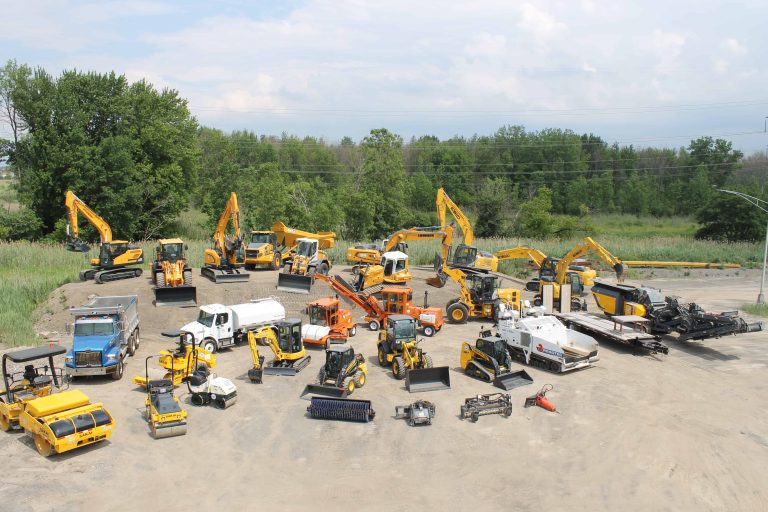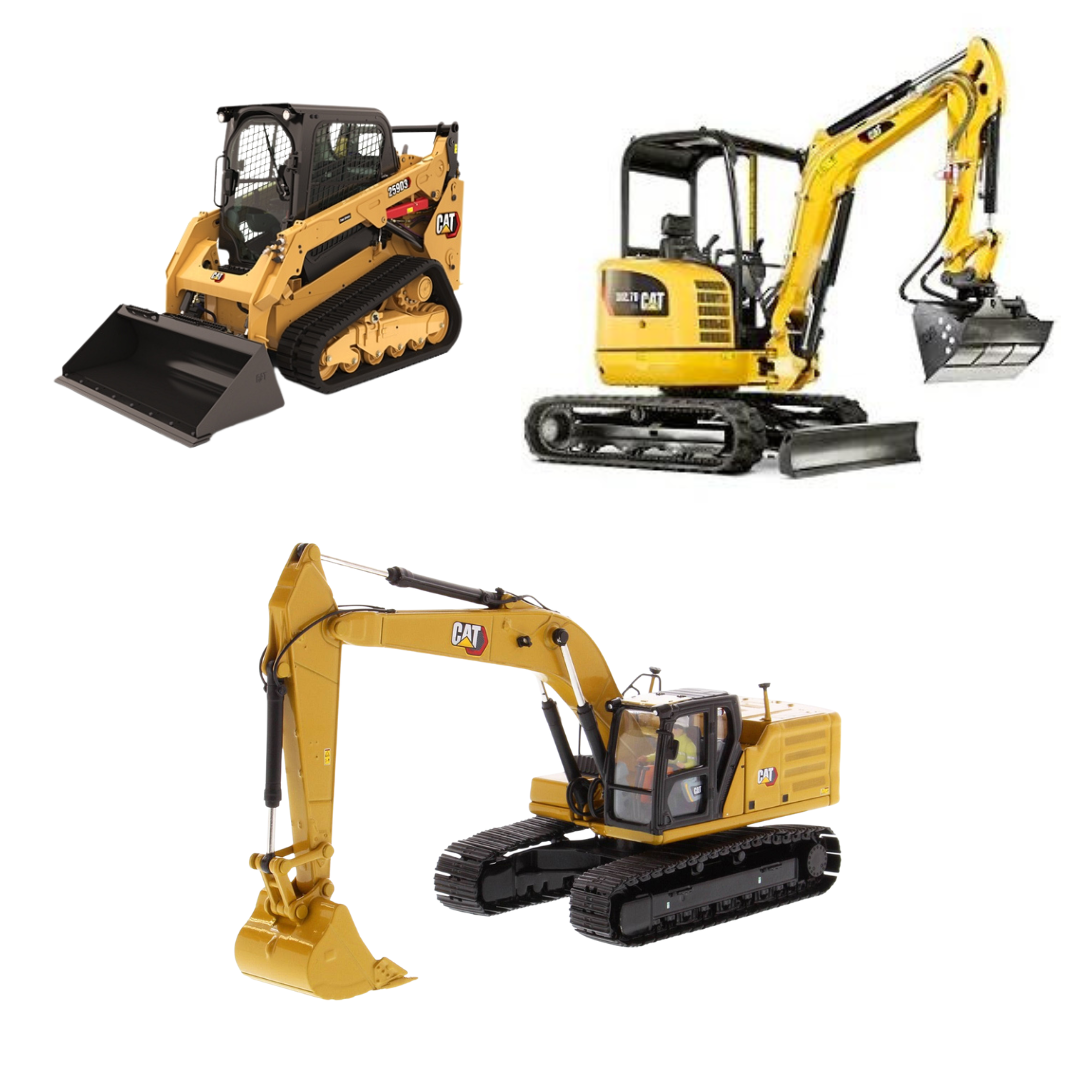Equipment Rental Company: Your Resource for All Types of Machinery
Equipment Rental Company: Your Resource for All Types of Machinery
Blog Article
Optimize Your Budget by Understanding the Prices Connected With Building And Construction Devices Rentals
Recognizing the full scope of expenses related to building equipment services is crucial for maximizing your budget plan. While the initial rental cost may appear simple, many extra expenses-- such as transport, fuel additional charges, and maintenance-- can rapidly build up, influencing your monetary preparation. Furthermore, recognizing numerous fees and the complexities of rental arrangements can help stay clear of unexpected monetary problems. What approaches can be utilized to efficiently manage these expenses and make certain a much more efficient rental experience?
Overview of Rental Prices
When thinking about construction devices leasings, understanding the connected prices is vital for effective budgeting and task preparation. Rental costs can differ substantially based upon a number of factors, consisting of equipment type, period of rental, and place. The initial rental charge commonly mirrors the equipment's market need and its associated functional capacities, influencing the general expenditure.
Along with the base rental price, supplementary expenses might occur, such as transport costs, gas surcharges, and upkeep charges. It is vital to represent these extra expenses to properly assess the overall expense of renting out tools. Additionally, the rental duration can influence pricing; longer rentals may certify for affordable rates, while short-term leasings may sustain greater day-to-day fees.

Failure of Rental Rates
A thorough understanding of rental prices is essential for service providers and project supervisors intending to optimize their budgets. Rental prices for construction equipment commonly are composed of numerous parts, consisting of base prices, time-based costs, and usage charges.
Base prices are the core charges related to the leasing of the tools, usually determined by the type and dimension of the equipment. These rates can vary significantly, affected by variables such as tools need, accessibility, and local market patterns. Time-based charges, which may be daily, weekly, or monthly, offer to accommodate different job timelines and rental durations.
Furthermore, rental rates might include usage costs, which apply when tools is made use of past a defined threshold, ensuring that the rental company can represent damage. Seasonal demand fluctuations can additionally impact rental rates, with peak construction periods generally commanding greater costs.
Moreover, recognizing the rental firm's policies concerning upkeep and insurance policy can give further insight into the overall expense structure. By analyzing these components, specialists can make enlightened decisions, making sure the choice of rental equipment aligns with both job requirements and spending plan constraints.
Extra Fees to Consider
Comprehending the ins and outs of added charges is vital for professionals to handle their general service expenses properly. Past the typical rental rates, different supplemental fees can significantly affect the overall cost of tools service. These costs frequently include distribution and additional info pick-up costs, which can differ based upon distance and logistics entailed in transporting the tools to and from the task site.
Moreover, some rental companies may enforce fuel surcharges if the devices is returned with much less gas than when leased. It is likewise important to recognize possible cleansing costs, especially for specialized devices that needs thorough upkeep after usage.

Thoroughly examining the rental contract and clarifying these extra fees upfront can assist specialists guarantee and avoid unforeseen costs that budgets continue to be undamaged throughout the project lifecycle.
Upkeep and Repair Work Expenditures
Regular repair and maintenance expenses are frequently neglected aspects that can significantly influence the total price of building and construction equipment leasings. When leasing devices, it is essential to take into consideration not just the rental costs yet additionally the possible expenses connected with maintaining the equipment in optimum operating condition.
Lots of rental firms consist of fundamental maintenance as part of the rental arrangement; however, much more unforeseen failures or comprehensive repairs can lead to added expenditures. It's necessary to assess the rental agreement thoroughly to recognize what upkeep solutions are covered and what responsibilities fall on the renter.
Moreover, tools that is not well-maintained can bring about inefficiencies on duty site, possibly causing delays and boosting task prices. To reduce these risks, it is suggested to conduct regular assessments and keep open communication with the rental service provider pertaining to any type of issues that develop during usage.
Insurance Coverage and Obligation Expenses
Insurance policy and responsibility expenses are critical components that can significantly influence the total expense of building tools leasings (scissor lift rental). These costs make certain that both the rental business and the customer are safeguarded from potential monetary losses occurring from accidents, damages, or theft during why not check here the rental duration

Additionally, customers must be aware of any kind of deductibles or exemptions in the insurance coverage, as these can affect possible out-of-pocket expenses. Understanding the conditions of any kind of insurance coverage is essential to avoid unforeseen prices. Ultimately, budgeting for insurance and responsibility costs can help ensure a smoother rental experience and protect against economic dangers connected with building and construction jobs.
Verdict
In verdict, a thorough understanding of the prices associated with construction equipment services is necessary for reliable budget plan management. Ultimately, informed decision-making relating to equipment services adds to the general success of construction endeavors.
Rental prices can differ dramatically based on a number of factors, consisting of devices kind, period of leasing, and location (equipment rental company). The rental duration can impact rates; longer rentals might qualify for discounted prices, while short-term leasings might incur greater daily costs
By carrying out thorough research study and engaging with trustworthy rental business, contractors can properly browse the intricacies of rental pricing, inevitably maximizing their monetary resources.
Past the typical rental rates, numerous additional costs can significantly affect the complete cost of devices service. Rental companies commonly provide obligation insurance that covers injuries to third events or damages to residential property, while equipment damage insurance coverage can cover the expense of fixings or replacement if the leased tools is damaged.
Report this page